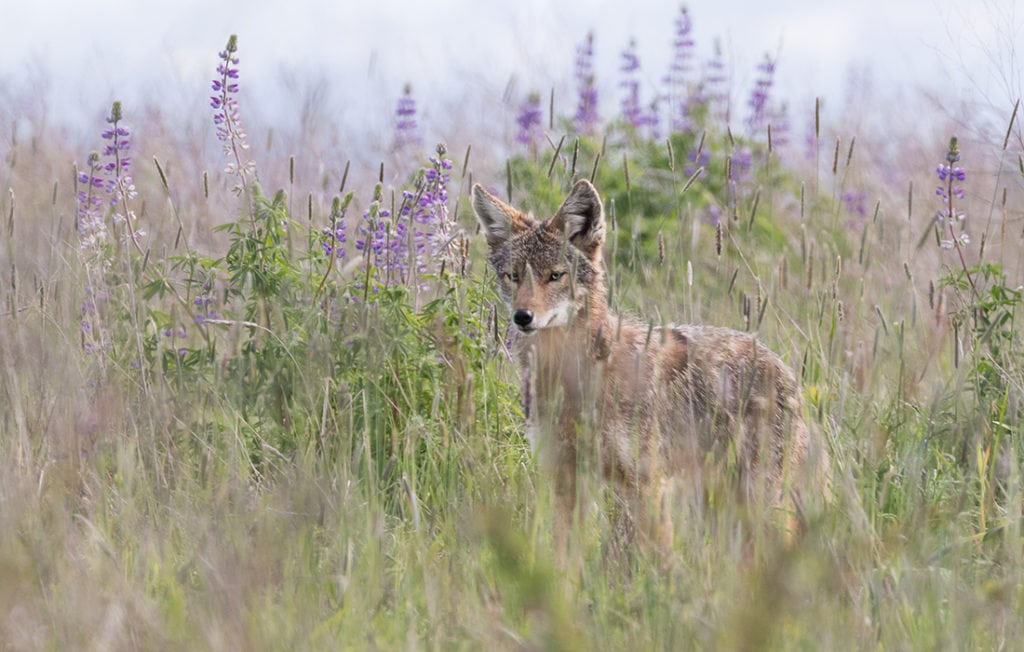
The easiest way to discourage skunks from coming onto your property is to get rid of unnatural food sources like pet food. Leaving pet food outdoors attracts skunks and increases the likelihood of pets encountering these wild animals.
If skunks are already denning on your property, either wait for them to stop using the den and then close it off or use exclusion techniques: Skunks like dark, quiet places, so loud sounds and bright lights will urge them to leave, as will certain strong smells. Keep in mind that you should never close off a denning location unless you are sure all skunks have vacated it, and that it’s best to use exclusion only after babies are old enough to walk.
Skunks are attracted to human residences for many of the same reasons as raccoons, so take a look at our guide to living with urban raccoons for more information. Wildlife Care Center staff and volunteers are also happy to provide advice on a case-by-case basis – just give us a call at 503-292-0304 or use our online Ask the Expert form.
Please note: Trapping regulations vary by state. Wildlife relocation – trapping and then moving wildlife to another location – is not a solution.
Hungry baby skunks
Raising 23 baby skunks is an intense process. At first, the youngsters in our care needed to be fed every 2-4 hours, and were kept in warm, quiet areas that limited their exposure to humans. Now that we’ve started to wean the babies, they plow through an impressive amount of solid food every day. If you’d like to help, the Wildlife Care Center is accepting donations of Science Diet Healthy Development cat food. Donations can be brought to the care center from 9 a.m. to 5 p.m. any day of the week.



